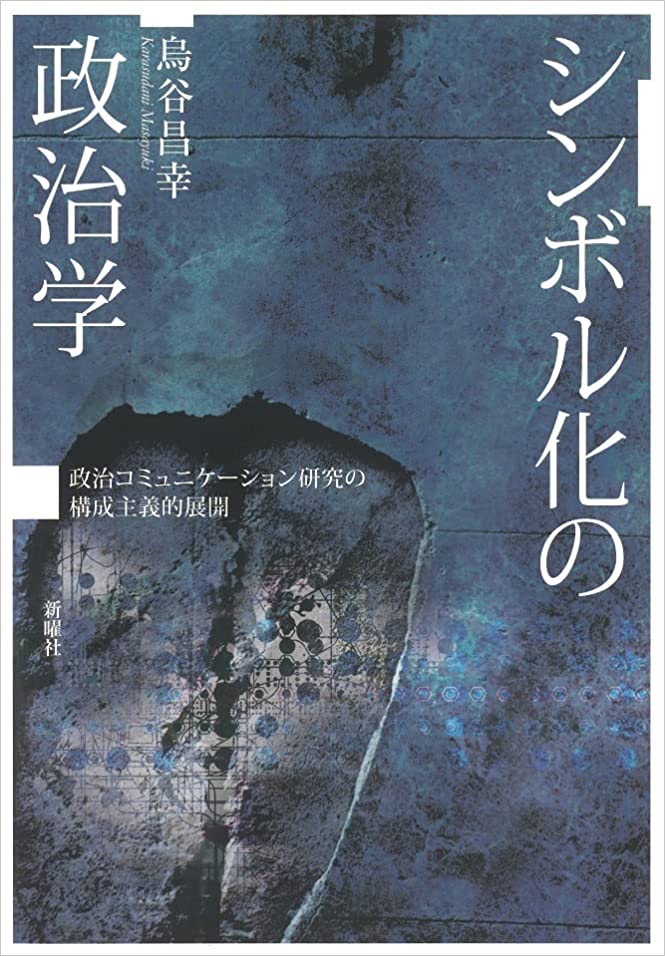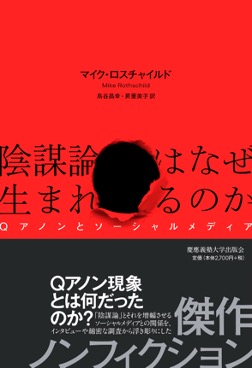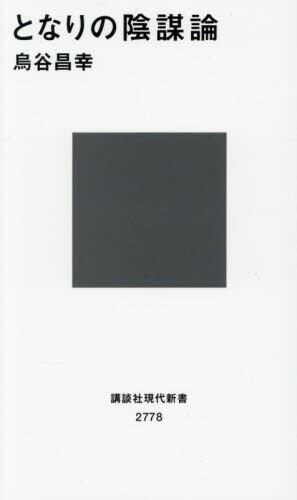-
Affiliation
-
Faculty of Law, Department of Political Science ( Mita )
-
Position
-
Professor
-
Related Websites

KEIO RESEARCHERS INFORMATION SYSTEM |
Details of a Researcher
このページはJavascriptを使用しています。すべての機能を使用するためにはJavascript を有効にする必要があります。
Karasudani, Masayuki
|
|
|
1974年6月14日生まれ。愛媛県新居浜市出身。慶應義塾大学法学部法律学科卒業。慶應義塾大学法学研究科にて修士号、博士号を取得。武蔵野大学現代社会学部、政治経済学部准教授を経て、現職。法学部政治学科に所属すると同時にメディア・コミュニケーション研究所においても研究会を担当している。2024年からは同研究所所長。専門領域は政治コミュニケーション研究、メディア社会論、ジャーナリズム論。関心領域は、「シンボル化の政治学」「陰謀論政治」など。
2022年に『シンボル化の政治学ー政治コミュニケーション研究の構成主義的展開』という著書を出版しました。この著書において、人々の欲望、感情と強く結びついたシンボルが社会の中で生まれ、政治の領域に取り込まれて利用されていく「シンボル化」のプロセスを研究することの重要性を主張しました。
この後、シンボル化の政治の現代的事例として陰謀論政治に注目するようになりました。直接のきっかけは、2021年1月6日にアメリカで起きた連邦議会議事堂襲撃事件でした。この襲撃は、バイデン大統領が当選した2020年のアメリカ大統領選で大規模な不正が実施された(「選挙が盗まれた」)という「不正選挙陰謀論」を信じた人々によって引き起こされたものでした。なぜ、人々はこのような荒唐無稽な陰謀論を信じるのかという問題をシンボル政治研究の視座から考えてみたいと思った次第です。
未知の領域であった陰謀論研究については、手探りで少しずつ進めてきました。手始めに翻訳をし、一般図書の執筆にも挑戦しました。この過程で、陰謀論をはじめとして人々を没入させる物語やメディア技術にも広く関心を向けるようになりました。今は、オンラインカジノにハマってギャンブル依存症になった人やゲーム障害の問題にも関心を広げながら、メディア社会論の教科書を執筆中です。
(左上)社会が大きな傷を負う時、人々は怒りや悲しみをシンボルとして結実させる。共通の認識や感情はいかにして集団の中から創出され、政治的な効力を発揮するのか。シンボル論という哲学的遺産を応用し、政治コミュニケーション研究の中核的な問いを追究する。この分野を根本から基礎付け直し、新たな展開へと牽引する意欲作。(2023年度 政治研究桜田會奨励賞)
(右上)マイク・ロスチャイルドの傑作ノンフィクションを昇亜美子と共訳。解説も執筆。
(下)陰謀論とは何か、インターネットの出現が陰謀論をどう変えたのか、社会や政治の分断が陰謀論とどのように関わっているのか、陰謀論は民主政治にどのような弊害をもたらすのかなどの基本的なテーマを網羅。陰謀論について興味を持った人に最初に読んでもらいたい入門書。
『シンボル化の政治学ー政治コミュニケーション研究の構成主義的展開』(新曜社、2022年)

『陰謀論はなぜ生まれるのか』(慶應義塾大学出版会、2024年)

『となりの陰謀論』(講談社、2025年)

Humanities & Social Sciences / Politics (political communication)
『シンボル化の政治学ー政治コミュニケーション研究の構成主義的展開』
烏谷昌幸, 新曜社, 2022.10, Page: 336
『入門 メディア・コミュニケーション』
山腰修三編, 慶應義塾大学出版会, 2017.11
Scope: 第4章、第10章, Contact page: 55-76頁、169-188頁
『戦後日本のメディアと原子力問題―原発報道の政治社会学』
山腰修三編, ミネルヴァ書房, 2017.03, Page: 49
Scope: 第1章 原子力平和利用政策の社会的意味―正当性の境界分析の試み, Contact page: 1-49
『メディアの卒論―テーマ・方法・実際』
藤田真文編, ミネルヴァ書房, 2016.08
『メディアが震えた―テレビ・ラジオと東日本大震災』
丹羽美之・藤田真文編, 東京大学出版会, 2013.03, Page: 28
Scope: 原子力とテレビ・ジャーナリズムの戦後史―夢語りからルネッサンスまでの半世紀, Contact page: 277-305
日下部 聡, 田森 秀明, 三輪 誠司, 清水 知子, 烏谷 昌幸, 松永 智子
Japan Journal of Media, Journalism and Communication Studies (Japan Association for Media, Journalism and Communication Studies) 105 ( 0 ) 3 - 21 2024.07
Single Work, ISSN 27581047
Masayuki Karasudani
サステイナビリティ研究 ( 5 ) 91 - 107 2015.03
Research paper (scientific journal), Single Work
Media frame and media power:Rereading The Whole World is Watching
Masayuki Karasudani
Media Communication ( 64 ) 5 - 23 2014.03
Research paper (scientific journal), Single Work
Karasudani, Masayuki
Keio media and communications research : annals of the Institute for Journalism, Media & Communication Studies (慶應義塾大学メディア・コミュニケーション研究所) ( 75 ) 2025.03
ISSN 13441094
Matsutaro Shoriki as an architect
Karasudani, Masayuki
Keio media and communications research : annals of the Institute for Journalism, Media & Communication Studies (慶應義塾大学メディア・コミュニケーション研究所) ( 75 ) 37 - 49 2025.03
ISSN 13441094
Karasudani, Masayuki
Journal of law, politics, and sociology (慶應義塾大学法学研究会) 97 ( 12 ) 125 - 131 2024.12
ISSN 03890538
Politics of symbolization : a constructionist approach to political communication studies
Karasudani, Masayuki
Keio communication review (Institute for Journalism, Media & Communication Studies, Keio University) ( 46 ) 5 - 22 2024.03
ISSN 03887596
Karasudani, Masayuki
Mita journal of sociology (三田社会学会) ( 28 ) 99 - 100 2023.07
ISSN 13491458
SPECIAL LECTURE ON JOURNALISM
2025
SEMINAR : SPECIAL STUDY OF POLITICS AND SOCIETY
2025
SEMINAR 6
2025
SEMINAR 5
2025
SEMINAR 4
2025